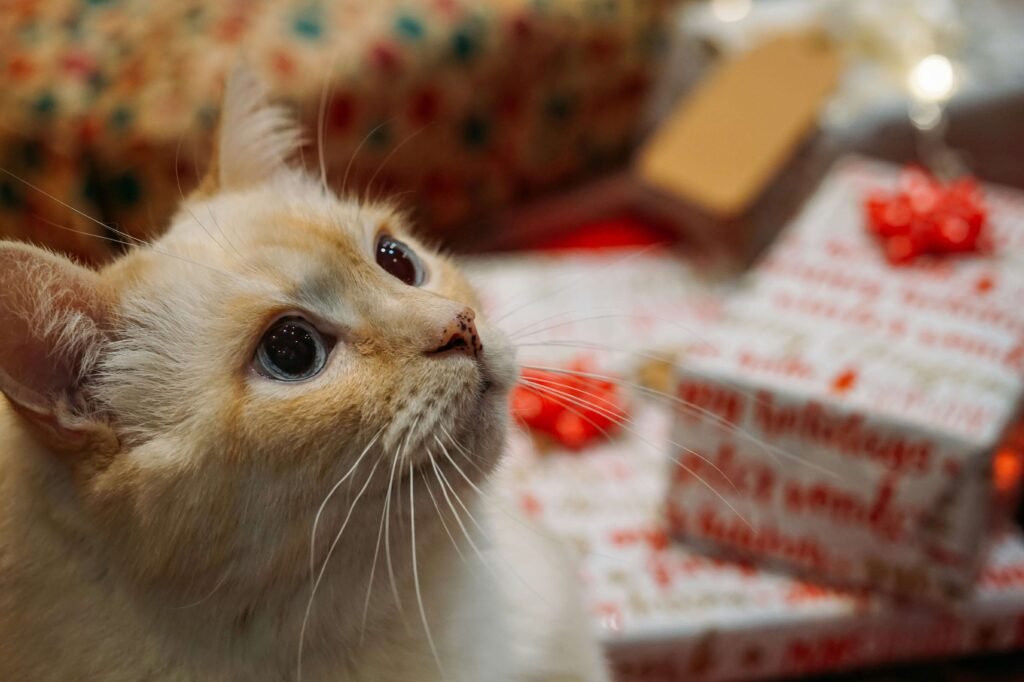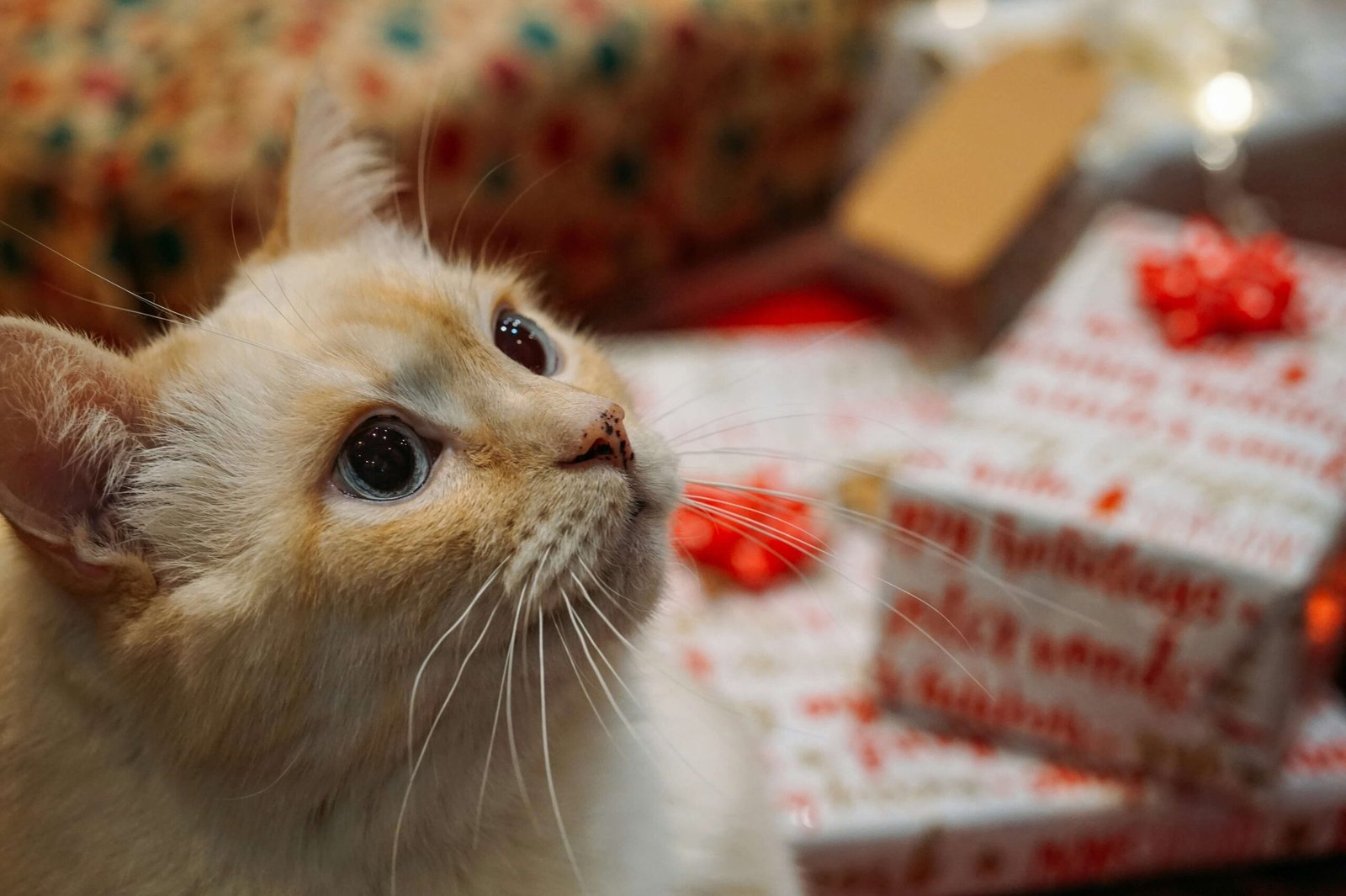The Sneaky Culprit: Why Cats Stealing Food is More Than Just a Mischief
Cats are adorable, graceful, and often mysterious creatures. They bring joy to our homes, curl up on our laps, and occasionally make us laugh with their quirky antics. But there’s one behavior that can transform even the sweetest feline into a sneaky little thief: stealing food. Whether it’s snatching a bite from your dinner plate or raiding the kitchen counter, cats have a knack for getting their paws on things they shouldn’t. This blog post dives deep into why cats steal food, how to manage this behavior, and what you can do to keep both your furry friend and your meals safe. Let’s explore the fascinating world of feline food thievery together!
Why Do Cats Steal Food? Unpacking the Feline Motives
Cats are natural hunters and opportunists, which explains much of their food-stealing tendencies. Their instincts drive them to seek out food sources whenever possible. Here’s a breakdown of the most common reasons behind this behavior:
Survival Instincts : Cats are wired to hunt and scavenge. Even domesticated cats retain these primal instincts, making them quick to grab food when they see it.
Curiosity : Cats are naturally curious creatures. If they see something new or interesting, like a piece of food left unattended, they’re likely to investigate—and sometimes eat it.
Boredom : A lack of mental or physical stimulation can lead to mischievous behaviors, including stealing food.
Hunger : Sometimes, the reason is as simple as your cat being genuinely hungry or not receiving enough food during meal times.
Taste Preferences : Cats may be drawn to certain foods because of their smell or taste, especially if those foods are high in fat or protein.
Understanding these motives can help you address the root cause of your cat’s food-stealing habits. By recognizing what drives your cat, you can take steps to curb this behavior effectively.
How to Prevent Your Cat from Stealing Food: Practical Tips
If your cat has developed a habit of stealing food, don’t worry—there are plenty of ways to discourage this behavior. Here are some practical strategies to keep your meals (and your cat) safe:
Store Food Securely : Keep all human food out of reach. Use sealed containers or store items in cupboards to prevent temptation.
Create a Feeding Schedule : Establish regular meal times for your cat to ensure they’re well-fed and less likely to seek out snacks elsewhere.
Use Deterrents : Place deterrents like motion-activated air sprays near areas where your cat tends to steal food. These harmless devices can discourage unwanted behavior.
Supervise Snack Time : If you’re eating something your cat finds irresistible, make sure to supervise closely or move to another room.
Provide Mental Stimulation : Engage your cat with toys, puzzles, or activities to reduce boredom and redirect their energy away from food theft.
By implementing these tips, you can create an environment that discourages food-stealing while ensuring your cat remains happy and healthy.
Check this guide 👉Does Cat Food Expire? Best 7 Expert Tips!
Check this guide 👉Understanding Guar Gum in Cat Food: Best 7 Health Tips!
Check this guide 👉How Long Can You Safely Leave Wet Cat Food Out? Best 7 Tips!

Prevention Strategies | Benefits |
|---|---|
Store food securely | Reduces access to tempting snacks |
Establish a feeding schedule | Helps regulate your cat’s hunger levels |
Use deterrents | Discourages unwanted behavior safely |
Supervise snack time | Prevents accidental ingestion of harmful foods |
Provide mental stimulation | Keeps your cat entertained and engaged |
Signs Your Cat Might Be Hungry: Recognizing the Signals
Sometimes, cats steal food because they’re genuinely hungry. Learning to recognize the signs of hunger can help you address this issue before it escalates. Here are some indicators to watch for:
Persistent Meowing : If your cat is vocalizing more than usual, especially around meal times, it could be a sign they’re feeling peckish.
Pawing at You : Cats often use gentle paw taps to get attention, particularly when they want food.
Inspecting Empty Bowls : If your cat is frequently sniffing or licking their empty food bowl, it might mean they need more nourishment.
Increased Activity Around Food : A sudden interest in your meals or kitchen counters could indicate hunger-driven behavior.
Weight Loss : If your cat is losing weight despite having access to food, consult a vet to rule out underlying health issues.
By paying attention to these signals, you can ensure your cat’s nutritional needs are met and reduce the likelihood of food theft.
Foods to Keep Away From Your Cat: A Safety Reminder
While it’s tempting to share your meals with your furry companion, many human foods can be harmful to cats. To protect your pet’s health, avoid giving them access to the following:
Onions and Garlic : These ingredients can damage a cat’s red blood cells and lead to anemia.
Chocolate : Toxic to cats, chocolate contains theobromine, which can cause seizures or heart problems.
Dairy Products : Contrary to popular belief, most cats are lactose intolerant and can experience digestive upset from milk or cheese.
Raw Meat and Fish : While cats love protein, raw meat and fish may contain harmful bacteria or parasites.
Alcohol : Even small amounts of alcohol can be life-threatening to cats.
Being mindful of these dangerous foods will help keep your cat safe and healthy while reducing the risk of accidental poisoning.
Common Mistakes to Avoid
When dealing with a food-stealing cat, it’s easy to make mistakes that unintentionally reinforce the behavior. Avoiding these pitfalls can go a long way in managing your cat’s habits effectively. Here are some common errors pet owners make:
Leaving Food Unattended : Leaving food on countertops or tables makes it too easy for your cat to snatch a bite. Always store food securely when you’re not actively eating.
Rewarding Bad Behavior : Accidentally rewarding your cat with attention or treats after stealing food can encourage them to repeat the action. Stay consistent with your responses.
Ignoring Hunger Cues : Overlooking signs of hunger can lead to desperation-driven theft. Make sure your cat is receiving adequate nutrition throughout the day.
By avoiding these mistakes, you’ll create an environment that discourages food-stealing and promotes positive behaviors instead.
Fun Ways to Redirect Your Cat’s Energy
Redirecting your cat’s focus from food to other activities can help curb their stealing tendencies. Engaging them in fun and stimulating ways not only keeps them entertained but also reduces boredom-related mischief. Consider these ideas:
Interactive Toys : Toys that mimic hunting, like feather wands or laser pointers, can satisfy your cat’s natural instincts and keep them occupied.
Food Puzzles : Puzzle feeders challenge your cat mentally and physically, making mealtime more engaging without encouraging theft.
Climbing Structures : Providing a cat tree or shelves encourages climbing and exploration, steering their energy away from kitchen counters.
Training Sessions : Teaching tricks or commands using positive reinforcement strengthens your bond while keeping your cat mentally sharp.
Window Perches : A cozy perch by a window allows your cat to observe birds and outdoor activity, providing hours of entertainment.
By incorporating these activities into your cat’s routine, you’ll give them healthier outlets for their energy and curiosity.
Signs Your Cat May Be Stressed
Sometimes, food-stealing behavior isn’t just about hunger or curiosity—it could be linked to stress or anxiety. Cats often express discomfort through changes in behavior, including stealing food. Here are some signs that your cat might be feeling stressed:
Excessive Grooming : Over-grooming can indicate stress and may coincide with food-related misbehavior.
Hiding More Often : If your cat is spending more time hiding than usual, it could be a sign they’re feeling uneasy.
Changes in Appetite : A sudden increase or decrease in appetite might point to underlying stress or health issues.
Aggressive Behavior : Uncharacteristic aggression toward people or other pets can signal emotional distress.
Litter Box Issues : Avoiding the litter box or having accidents outside of it can be linked to stress or anxiety.
If you notice any of these signs alongside food-stealing behavior, it’s worth consulting a veterinarian or animal behaviorist to address potential stressors in your cat’s life.
FAQ
Why does my cat always try to steal my food?
Cats may steal food due to survival instincts, curiosity, boredom, hunger, or attraction to specific tastes.
Is it safe to let my cat eat human food?
Some human foods are safe for cats in moderation, but many are toxic. Always check before sharing your meal.
How can I stop my cat from jumping on the table?
Use deterrents, provide alternative climbing spaces, and reward good behavior to discourage table-jumping.
What should I do if my cat eats something dangerous?
Contact your veterinarian immediately for advice on how to proceed.
Can I train my cat not to steal food?
Yes, with consistency and patience, you can train your cat to avoid stealing food by using positive reinforcement techniques.
Managing Food Theft: Building a Harmonious Relationship with Your Cat
Dealing with a cat that steals food can be frustrating, but it’s important to remember that this behavior stems from natural instincts and curiosity. By understanding why your cat engages in this behavior and taking proactive steps to prevent it, you can foster a harmonious relationship with your feline friend. From storing food securely to providing mental stimulation, every effort counts toward creating a safer and happier environment for both you and your pet. With patience and consistency, you’ll soon find that food-stealing becomes a thing of the past, leaving more time for cuddles and playtime.
Do Cats Have Taste Buds? Best 7 Expert Tips! – Discover how cats experience flavors and why their taste is so unique.
Do Dogs Have Taste Buds? Best 7 Expert Tips! – Discover how dogs experience taste, their preferences, and what it means for their diet and health.
Can Cats Taste Sweet? Best 7 Expert Tips! – Discover why cats can’t taste sweetness, how it affects their diet, and tips to keep them healthy and happy.
Can Dogs Taste Sweet? Best 7 Expert Tips! – Discover how dogs perceive sweetness, which foods are safe, and tips to manage their sweet cravings responsibly.





